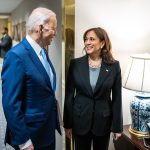The incoming Trump administration, with Scott Bessent perched on the edge of the Treasury Secretary seat, is gearing up to put the pedal to the metal on tax reform. A bold promise is being made: reduce the tax burden on hardworking American manufacturers, service workers, and retirees. According to Bessent’s remarks for the Senate panel, failure to act could lead to a budgetary apocalypse—a jaw-dropping, wallet-crushing $4 trillion tax hike that would make even the most seasoned taxpayer shudder. The 2017 Tax Cuts and Jobs Act isn’t just a nice gesture; it’s the cornerstone that needs to be set in stone and fortified with new pro-growth policies.
Having kept a low profile since being selected for the position, Bessent is finally stepping into the limelight. He has been juggling meetings with senators from both sides of the aisle, preparing for a Senate Finance Committee interrogation more intense than a “Jeopardy” finale. Expect the panel to grill him on an assortment of hot-button issues: tariffs, cryptocurrency reserves, the future of Fannie Mae and Freddie Mac, tax cuts, and U.S. currency policy. Bessent is set to clarify that the U.S. dollar’s status as the world’s reserve currency is non-negotiable, arguably as important as grandma’s secret apple pie recipe.
On a more serious note, Bessent aims to underscore the need for America to secure its supply chains, which he describes as vulnerable and posing a potential threat from global competitors. He plans to argue that sanctions should not just be tossed around like confetti but strategically utilized as part of a comprehensive national security plan. The overarching theme? Make sure the U.S. economy stands tall on its own two feet, with the dollar leading the charge.
Bessent To Call For Tax Relief For Manufacturers, Service Workers, And Seniors https://t.co/LTprFn36Hx via @BreitbartNews
— Michael J. Fell (@MichaelJFell) January 17, 2025
This discussion is particularly poignant when contrasted with the anemic state of U.S. manufacturing under the current administration. While President Biden has funneled billions into green energy and diversity, equity, and inclusion initiatives, results have been dismal. Job growth in manufacturing has gone south while prices have skyrocketed. Bessent insists that productive investment should take the lead over unnecessary spending that inflates costs and shrinks the purchasing power of everyday Americans.
Lastly, Bessent seems ready to champion President Trump’s plans for imposing tariffs and negotiating trade deals that actually favor American businesses. There’s a glimmer of optimism in the air; Trump’s assertion that foreign productions could dodge tariffs by moving their operations to the U.S. is a plea for restoring American manufacturing pride. In summary, the energy is clear: stand firm for American workers and break away from ineffective policies that have led to economic stagnation. One can only hope the Senate is ready to roll up their sleeves and actually work towards a more prosperous America.




